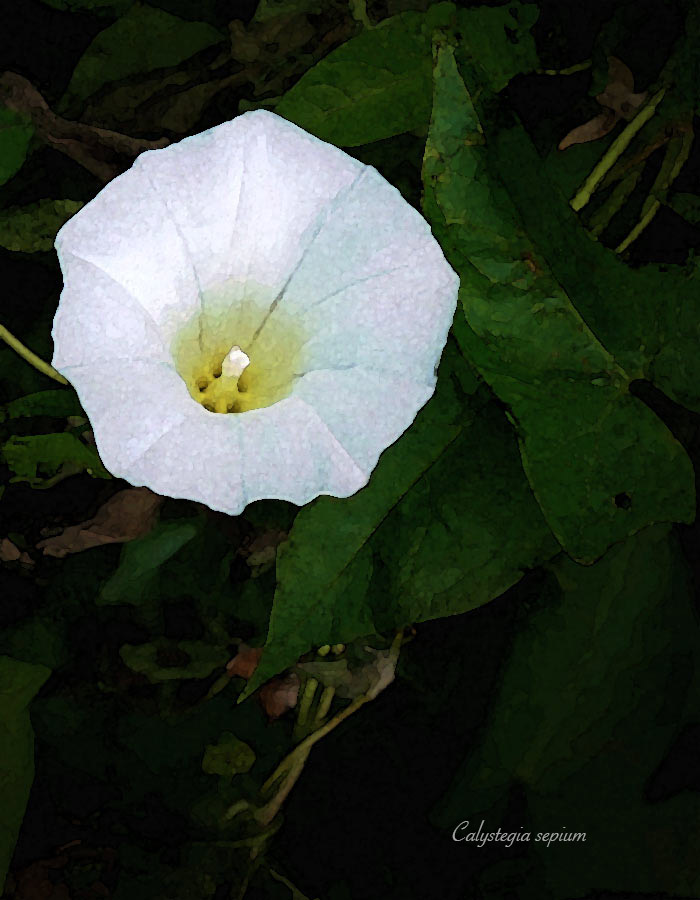The USDA plant site attributes 18 Genera and 234 accepted taxa overall to the Class Convolvulaceae.
In The Vascular Plants of Iowa (1994) Eilers and Roosa report 5 Genera and 17 species in Iowa for Convolvulaceae.
Members of the Class Convolvulaceae (Morning-glory family) share the following characteristics:
They are herbaceous vines with funnel shaped corollas(radially symmetrical); flowers are composed of five sepals, five fused petals, and five stamen attached to the petals, ovaries produce two seeds per fruit; the leaves are simple and alternate and lack stipules, the stems are usually winding (convolvere [Lat.] to wind).
Calystegia (have two large bracts that cover the 5 sepals)
Calystegia sepium is common in Iowa.
C. spithamaea is present but rarely found, and then only in eastern Iowa.
Convolvulus (two small linear bracts on pedicel - not hiding sepals)
Convolvulus arvensis is common in much of the state but rare in S.E. Iowa. It is rated as a primary noxious weed.
Cuscuta (stem parasites)
Cuscuta is represented by eight species in Iowa. All are rated infrequent to rare except C. glomerata which is common in the North central part of the state.
Ipomoea
Ipomoea includes 6 species in the state. It is distinguished from other genera in the Convolulaceae by features of the gynoecium. Ipomoea spp. have undivided styles with stigmas that are either single capitate or with 2 or 3 globular lobes.
Stylisma
Stylisma is represented by a single rare species (S. pickeringii) in S.E. Iowa
